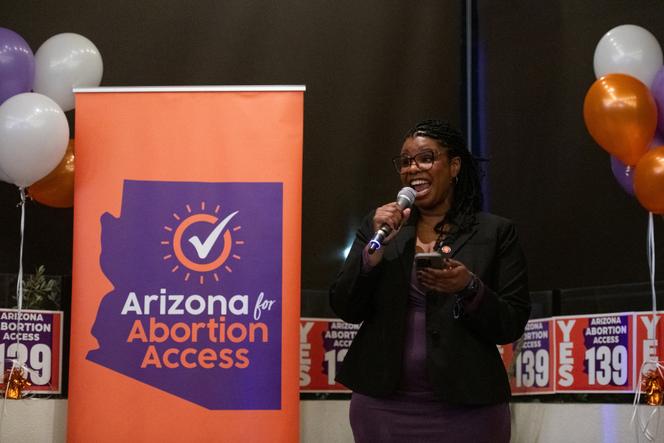


In addition to electing their president and renewing the US Congress, on Tuesday, November 5, Americans voted in local referendums on a range of issues, such as voting rights, cannabis legalization and local taxes. In 10 states, residents voted on measures relating to the right to abortion.
The vast majority of these referendums were aimed at enshrining the right to abortion in state constitutions. In the wake of the Supreme Court's 2022 decision to overturn Roe vs. Wade, a decision that had previously guaranteed the right to abortion on a federal level, many activist groups with ties to the Democratic Party effectively mobilized to organize these types of local voter consultations.
Only one referendum had the opposite aim. Voters in Nebraska, in a confusing situation, voted on two measures: One that establishes the right to abortion in the state Constitution, and the other that maintains the ban on abortion from the second trimester of pregnancy.
At the end of the voting, voters only rejected measures to better protect abortion rights in three of the 10 states: In Nebraska and South Dakota, a majority of votes rejected the amendments; in Florida, the 57% majority of votes proved insufficient, as the state Constitution can only be amended when a measure receives more than 60% of the vote.
In the three Democratic states – New York, Colorado and Maryland – residents voted in favor of abortion access. This was also the case in four traditionally Republican states: Nevada, Arizona, Montana and Missouri. Some voters were thus able to vote both for Republican candidates in the presidential and Congressional elections, and also vote in favor of a local referendum aimed at better establishing the right to abortion.
For example, in Missouri, Josh Hawley, one of the staunchest opponents of abortion rights in Congress, was re-elected as a senator (with 55.5% of the vote) at the same time as the amendment to repeal the state's abortion ban passed with 51.9% of the vote.
In 2022, Donald Trump hailed the Supreme Court's decision to overturn the Roe vs. Wade decision, and crowed about having contributed to it by appointing three conservative judges during his first term in office. He has since avoided the subject during his campaign, leaving the choice to legislate on the matter up to the states. Anti-abortion groups, for their part, made it clear, even before the election, that they would continue their campaigns against local referendums after the election, using all possible legal methods.
Translation of an original article published in French on lemonde.fr; the publisher may only be liable for the French version.
